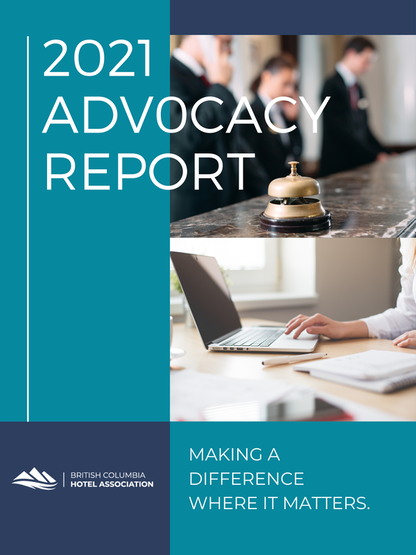The BCHA is deeply committed to cultivating positive change at the national, provincial, and community level through our advocacy work. Explore a number of recent key advocacy wins below in our advocacy timeline!

In 2021, the BCHA worked to move the needle on a wide array of key priorities for the sector to support with industry development now and far into the future. We had regular meetings with officials in many government organizations at a senior level, including Tourism, Arts, Culture, and Sport; Finance, Jobs Economic Development Innovation and Recovery; Energy Mines; Clean BC; and Municipal Affairs and Housing. Regular engagement ensured that a constructive dialogue around current challenges and possible solutions.
We also worked with hoteliers around the province to engage with local government, to help them understand the challenges facing the industry so they had the opportunity to advocate on our behalf.
Explore some of this work in our 2021 advocacy report included below.
Copyright © 2023 All Rights Reserved BC Hotel Association